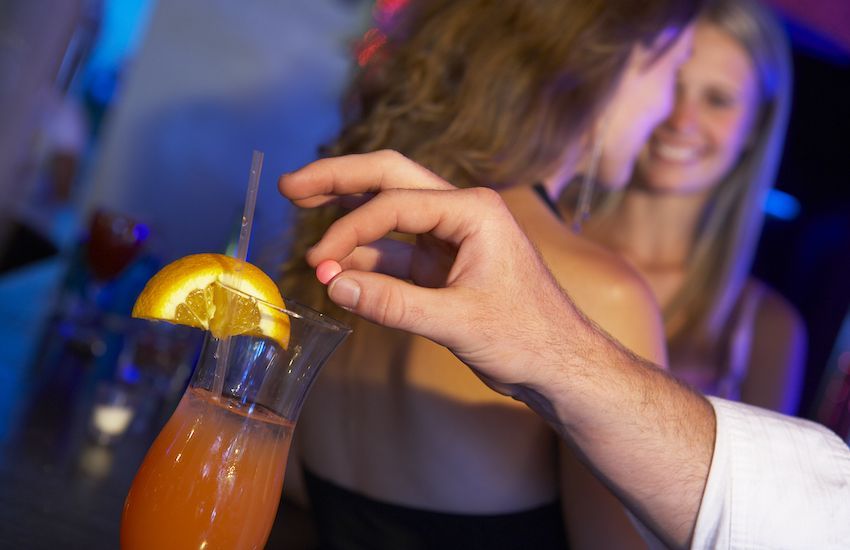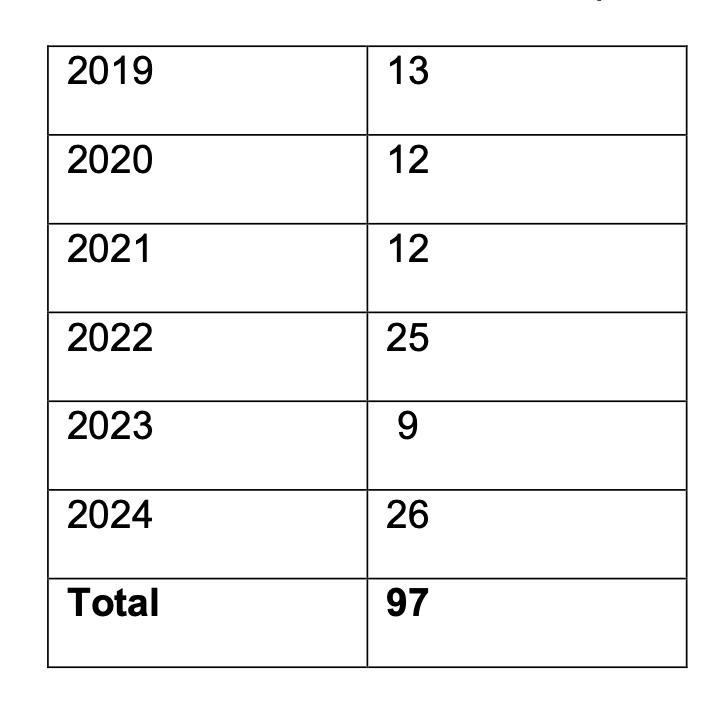


Official stats for reported spiking incidents may underrepresent the issue, with "shame" holding some islanders back from seeking help, according to a local security expert.
Rob Jackson, who runs Atlantic Security, said he was keen to "promote the safety side" of "having a good time" following a recent suspected spiking incident, and is urging islanders on nights out to stick with their friends and head to the Emergency Department if they are worried.
His comments on the latest episode from Bailiwick Podcasts came after a man fell ill on Friday after consuming what is thought to be laced chewing gum that he accepted from a male stranger outside a nightclub. Police are continuing to investigate.
While Mr Jackson said spiking isn't something that the security industry "see a huge amount of", he added that concrete data on spiking incidents was needed to fully understand the scope of the problem.
"The problem is that because there is such a lack of information, a lack of real hard data around the subject, it's very difficult to understand whether there is a problem or whether there isn't," Mr Jackson explained.
New data obtained by Express under the Freedom of Information Law revealed 97 reports of suspected drink spiking to the States Police over the past five years, despite no convictions under the relevant law.

Pictured: The number of reports received by the police since January 2019.
However, Mr Jackson suggested that these statistics may not paint a full picture due to underreporting.
This, he explained, was due to victims being reluctant to come forward because of a sense of stigma.
"People can feel a complete loss of dignity and a real sense of harm when they have been violated, which means that it doesn't seem to get recorded as regularly as it should," he said.
Listen: Listen to the full interview with Mr Jackson via the player above or by searching Bailiwick Podcasts with your preferred provider.
"We've got to find a way, as a society, to prevent people from feeling the shame that they're the ones that have made it happen.
"They haven't. Somebody has done it to them. That's going to be undone.
"And the only way we can do that is by managing people with care, consideration and professionalism."
Mr Jackson added that the lack of convictions and relevant data around spiking was also due to the complex and challenging nature of police investigations.
This is because the drugs involved often pass through the body's system quickly — which makes them difficult to detect.
"Your body's going to metabolise it so quickly that if you don't do it there and then, it's gone in the morning," he explained.
Because of this, the security expert encouraged anyone who suspects they have been drugged to visit the Emergency Department to undergo tests to identify the substance and receive proper medical care.
“It’s a medical emergency and needs to be treated as such,” he added.
He also advised partygoers to look out for each other and be cautious about accepting drinks from strangers.
"When going out in a group, one thing you could do is have someone that's a bit more sober than the rest of you, who could do the sensible thing," he said.
"Another thing you could do is to be way more cautious about how you accept a drink from anybody.
"I don't believe that you get many instances where people are going around and randomly throwing pills or powders in drinks.
"It can happen. But you're much more likely to get given a drink by somebody that's a stranger that has something in it."
The head of Atlantic Security also called for new legislation to more precisely define and address the act of administering substances without consent. In Jersey, this crime is currently prosecuted under the offence of "administering drugs to obtain intercourse".
However, Mr Jackson argued that creating a specific offence for "administering drugs without consent" would more directly target spiking, rather than categorising it within broader drug and sexual offences.
"Administering a drug without somebody's consent should be punishable by a sentence from the courts," he said.
However, just yesterday, Home Affairs Minister Mary Le Hegarat told the States that existing legislation is adequate to address the threat of drink spiking and there are no immediate plans to create a new offence.
She said: "I am reassured that existing legislation designed to address spiking is fit for purpose, and as such there is no need to develop a new offence to address this behaviour."
Despite this, the Minister also said that creating a specific spiking offence is not entirely "off the agenda" for Jersey — although it is not currently part of the Minister's delivery plan that goes on to mid-2026.
The issue of nighttime safety and spiking has also been an area of focus in Guernsey in recent months – and this week it was announced that several venues on the island are set to be certified under a national safety initiative as part of a new effort to improve safety for staff and customers.
This initiative has been launched by SafetyNet Guernsey, a charity that works with night-time economy venues, Guernsey Police, charities and other stakeholders to make nights out safer for everyone.
The training, offered through the Safe Place Project, is due to cover key areas such as allyship, anti-spiking measures, and preventing sexual violence.
The charity is hosting a quiz on 14 November to raise funds to subsidise safety training for participating venues.
SafetyNet Chair Poppy Murray said the training will be "invaluable in creating a safer night-time economy" and hopes more venues will take part.
“Customers will feel safer knowing certified venues are trained to help them, and staff will be more confident in handling incidents.”
Police have issued the following advice for staying safe on a night out:
Never accept drinks from strangers
Don't leave your drinks unattended
Stay with your friends
Plan your journey home
For those affected, Jersey Action Against Rape offers a confidential helpline at 01534 482 800.
Hospitality industry to work with campaigner to help prevent spiking
Police investigate spiking attempt involving laced "chewing gum"
Comments
Comments on this story express the views of the commentator only, not Bailiwick Publishing. We are unable to guarantee the accuracy of any of those comments.